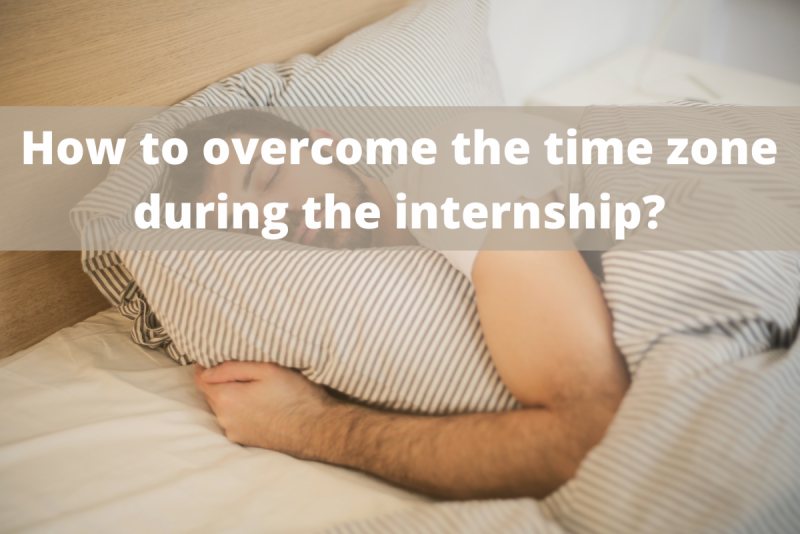Internship 2022 : How to overcome the time zone during the internship?
With Animafest we offer internships to students from all over the world. If you plan to come to Spain, you may have to change your time zone and your lifestyle drastically.
Read our tips on how to handle this before you start your internship, so you can enjoy the sun and beautiful scenery as soon as possible.
 Time zone is the result of a sensory mismatch between our circadian rhythm and sensory information.
Time zone is the result of a sensory mismatch between our circadian rhythm and sensory information.
Normally, the time zone is more pronounced when traveling east than west. This makes South America a truly fantastic destination for North Americans, as travelers experience less time zone than in destinations such as Europe or Asia.
Naturally, the more time zones you cross, the greater the effects.
You can minimize this difference by starting to tailor your eating and sleeping schedules to your destination before you leave and choosing flights aboard new-generation aircraft, such as the Boeing 787 or Airbus 350, which have higher cabin humidity than conventional aircraft and feature high-tech cabin lighting. Both features are designed to make you feel good during and after your flights.
How to avoid time zone travel?
Drink plenty of non-alcoholic fluids and nourish your body with wholesome, natural and healthy foods. Maintain your blood circulation by stretching and walking during flights, when the seat belt sign is off and during layovers.
Use earplugs or noise-canceling headphones to reduce ambient noise and stay relaxed.
How to avoid the time zone when arriving in Spain?
It is important to adapt to the local time from the beginning: eating and sleeping at the local time of your destination will help you adapt to the new time zone as soon as possible.
 Even if you are tempted to start exploring your destination immediately, take a few minutes to shower and freshen up.
Even if you are tempted to start exploring your destination immediately, take a few minutes to shower and freshen up.
Also, taking a 20-minute nap before you start exploring is a good way to recharge your batteries.
Get as much light as possible: traveling in Spain is a good way to get to know the area and get more natural light, which helps you adapt to the new time zone.
In general, exposure to sunset light helps you adapt to a time zone more slowly than usual (traveling west), while exposure to morning light can help you adapt more quickly to a time zone (traveling east).
The only exception is if you have traveled more than eight time zones from your original time zone, because your body may confuse early morning light with dusk.
Therefore, if you have traveled more than eight time zones eastward, wear sunglasses and avoid harsh light in the morning, allowing as much sunlight as possible in the late afternoon during the first few days in your new location.
Follow your new schedule: set your watch to the new time before you leave.
Once you arrive at your destination, try not to sleep until local time in the evening, no matter how tired you are and also try to match your meals to local time.
Stay hydrated: drink plenty of water before, during and after the flight to counteract the dehydrating effects of dry cabin air, as dehydration can worsen time zone symptoms.
Avoid alcohol and caffeine, which can further dehydrate you and affect your sleep.
Try to sleep on the plane if it is dark at your destination.
Earplugs, headphones and sleep masks can help block out noise and light. On the other hand, if it’s daytime at your destination, resist the urge to sleep during the flight.
Register on our website animafestexperience.com and do your internship with us.





